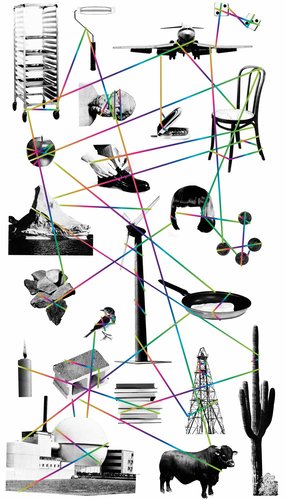“The Internet likes you, really likes you. It offers you so much, just a mouse click or finger tap away. Go Christmas shopping, find restaurants, locate partying friends, tell the world what you’re up to. Some of the finest minds in computer science, working at start-ups and big companies, are obsessed with tracking your online habits to offer targeted ads and coupons, just for you …
“But now — nothing personal, mind you — the Internet is growing up and lifting its gaze to the wider world … the protean Internet technologies of computing and communications are rapidly spreading beyond the lucrative consumer bailiwick. Low-cost sensors, clever software and advancing computer firepower are opening the door to new uses in energy conservation, transportation, health care and food distribution. The consumer Internet can be seen as the warm-up act for these technologies
“The concept has been around for years, sometimes called the Internet of Things or the Industrial Internet. Yet it takes time for the economics and engineering to catch up with the predictions. And that moment is upon us.
“‘We’re going to put the digital ‘smarts’ into everything,’ said Edward D. Lazowska, a computer scientist at the University of Washington. These abundant smart devices, Dr. Lazowska added, will ‘interact intelligently with people and with the physical world.’
“The role of sensors — once costly and clunky, now inexpensive and tiny — was described this month in an essay in The New York Times by Larry Smarr, founding director of the California Institute for Telecommunications and Information Technology; he said the ultimate goal was ‘the sensor-aware planetary computer.’ That may sound like blue-sky futurism, but evidence shows that the vision is beginning to be realized on the ground, in recent investments, products and services, coming from large industrial and technology corporations and some ambitious start-ups.
“One of the hot new ventures in Silicon Valley is Nest Labs … Its product, introduced in late October, is a digital thermostat, combining sensors, machine learning and Web technology. It senses not just air temperature, but the movements of people in a house, their comings and goings, and adjusts room temperatures accordingly to save energy.
“At the Nest offices in Palo Alto, Calif., there is a lot of talk of helping the planet, as well as the thrill of creating cool technology. [UW CSE’s] Yoky Matsuoka, a former Google computer scientist and winner of a MacArthur ‘genius’ grant, said, ‘This is the next wave for me.'”
Excellent article! Read it here.


